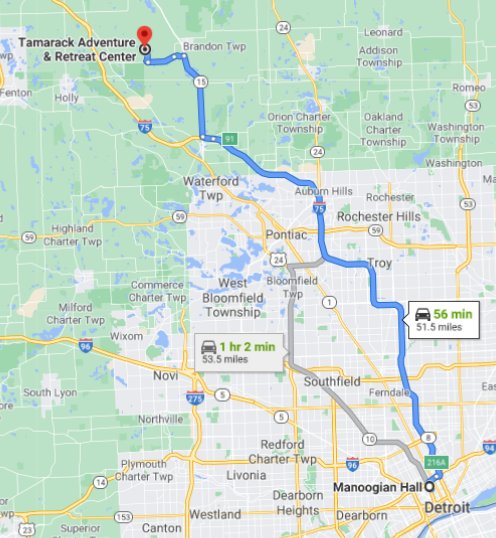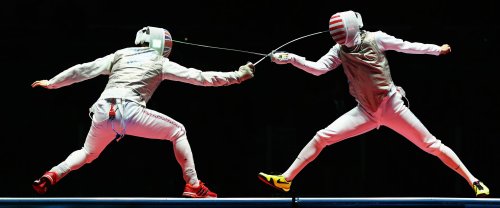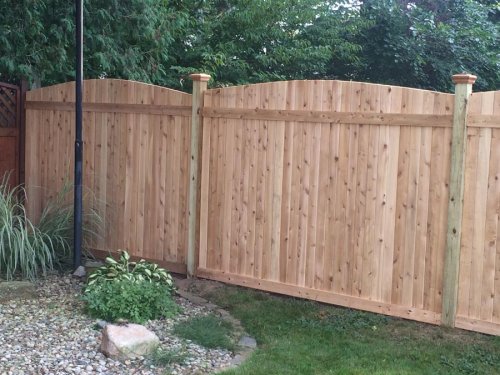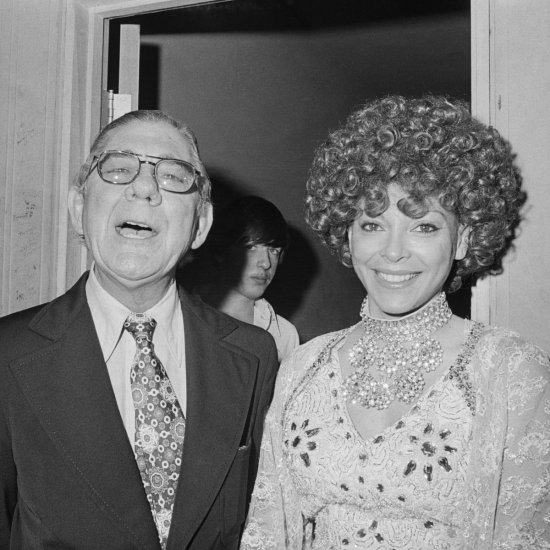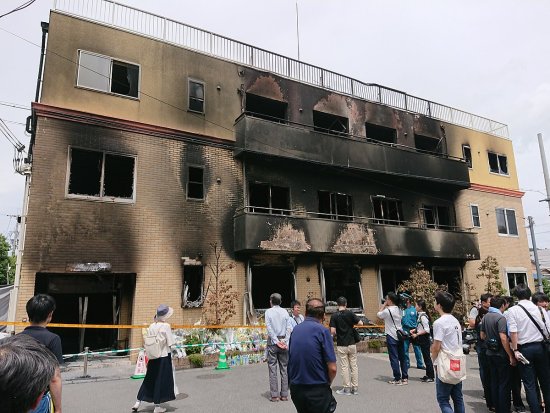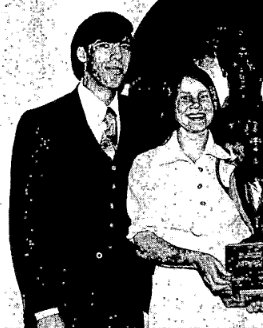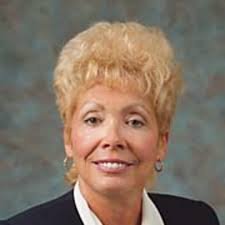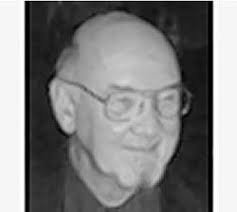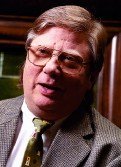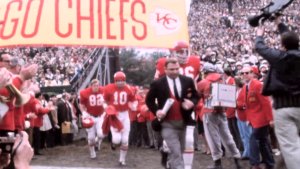Debate at Wayne. Continue reading
The resolution for 1977-78, my first year at Wayne State, was: “Resolved: That the United States law enforcement agencies should be given significantly greater freedom in the investigation and/or prosecution of felony crime.”
The three resolutions during the time that I was at Wayne State were much more limited than the previous three that the guys from Michigan debated. This may have been an adverse reaction to the topic for 1976-77, the consumer product safety resolution. It was a nightmare for negative teams.
Wayne State’s debate team was in a rather strong position at the beginning of the school year. George Ziegelmueller and Jack Kay were both experienced coaches. Vince Follert had been a good debater for several years at Loyola of Chicago, and he had attended both regional and national tournaments. Against fairly heavy odds I had coached teams through the district tournament to qualify for the National Debate Tournament (NDT) two years in a row. No coach at Wayne the previous year had comparable credentials.
In 1977 Wayne State had, for the first time in several years, qualified for the NDT. One of the two debaters from that NDT team, Chris Varjabedian, was returning. The other, Bill Hurley, had graduated and was in Law School. The biggest problem, from my perspective, was that no one had much experience on the “national circuit”.
The Novices: George named Jack Kay to continue as “Director of Novice Debate” for the third year in a row. That was a pretty strong indication that George intended to coach the varsity debaters himself. During the first couple of months the rest of us concentrated on getting the new batch of inexperienced novices ready for the Michigan Intercollegiate Speech League tournament. Wayne’s novices debated three rounds against novices from other schools. All pairs debated the same side (affirmative or negative) all three rounds.
Working with these inexperienced students was time-consuming and often frustrating. Little time was left for any of the coaches to help the experienced debaters. Each coach saw some of them in a practice round or two, but the emphasis for us was on getting the new people prepared for MISL.
The first step was to get recruits to fill out a form with contact information and a short description of each one’s experience and goals. We then interviewed each person. After all the interviews were completed, the staff met as a group to make pairings. The objective was to try to match up people with approximately the same enthusiasm and potential. We did a horrible job. First impressions in meetings proved worthless as indicators of potential.
At least four freshmen had significant high school experience—Kevin Buchanan, Mike Craig, Nancy Legge, and Teresa Ortez. The boys, who both came from top Michigan high school programs, were assigned to debate together. Nancy’s partner was Teresa. I don’t remember if any of this foursome went to MISL.
In fact, I remember precious little about the whole process. Although I devoted many hours to getting my charges as prepared as possible, I harbored no illusions that many of the inexperienced debaters would stay with the program. If they had to face off against Buchanan and Craig, they would not know what hit them.
Camp Tamarack: George had a clever trick for keeping people on the team after MISL Novice. He scheduled an overnight trip for the entire FU to Camp Tamarack, a woodsy resort in Ortonville, MI. The alleged purpose was to do research, but several recreational activities were built into the schedule. We drove up on Friday afternoon and returned on Saturday evening
I remember a few things about the weekend. First, the food service was kosher. Jack Kay had to explain the rules to everyone.
My most vivid memory of the weekend was Kent Martini’s outstanding performance in the scavenger hunt, as I described here.
I wasn’t very impressed with the research aspect of this exercise. George or Jack checked out some books on the debate topic from the Wayne State library. I missed having access to the outstanding U-M library system. It was so much better than Wayne’s. On the other hand, this approach certainly made everyone feel that they were part of the team.
The Varsity: For the first semester the big question for the varsity debaters was; “Who will debate with Chris?” At the beginning of the year the two main contenders were Debbie McCully and Kent Martini. Debbie was (at least in theory) a senior; Kent was a junior. In addition, the novices from the previous year were pretty good. Four of them had closed out the finals of a novice tournament that year. Of the three that returned to the team as sophomores, it was obvious to all of the coaches that Scott Harris was more than a cut above the others.
Somewhere around the Christmas break Chris Varjabedian quit the team. I have no idea what prompted this, but he returned the next year.
George tried the three combinations of Debbie-Kent, Debbie-Scott, and Kent-Scott. The results were not decisive. George asked me which pairing I thought was the strongest. I voted for Kent-Scott. I assume that George also asked Vince and Jack and maybe even Billy Benoit. I was a little surprised when George named Scott and Debbie as the representatives at district. Scott did first negative and second affirmative.
One thing that was never in doubt was the affirmative case that had been developed by George and Chris. They called it “fencing”, but it was really about labeling all goods for sale in the United States and recording all transactions on a mythical computer. “Super computers” existed in 1977, but they were far less powerful than a twenty-first cellphone. Hand scanners did not exist. All transactions would need to be entered by hand. Think about that. Every time that currency was exchanged for goods anywhere in the United States, someone would have to input the transaction into the national database, whether it was a girl scout selling cookies or a container ship bearing goods from foreign countries. Also, of course, there were no networks. Without the Internet, how would they check the database?
I absolutely hated this case. It epitomized what I called a “Class Z case”. The idea was so insane that no one would have bothered to describe what was wrong with it. George and Chris found a few articles that postulated a reduction in thievery if a good record keeping system was implemented.1 There were no nationwide studies; it was just a thought experiment.
The negative teams were in a tough position. They could attack the evidence proffered by the affirmative, but what else could they do? Little had been written about the subject. What writer or researcher would be inspired to warn of the dangers of relying on a computer that clearly did not exist and a process that still would not be close to feasible after four decades of Moore’s Law2? And who would publish the ravings of such a Cassandra?
I don’t remember the tournament at which this happened, but I have a very clear memory of an elimination round that I watched rather late in the season. It pitted one of Northwestern’s superb teams against Wake Forest’s duo of Ross Smith and John Graham. I was not judging the round; I wasn’t even taking a flow. I remember sitting next to Jim Maniace (pronounced MAN us, but I called him maniac), the only good debater from Notre Dame that I ever heard. He had won a place in my heart when he told a Wilbur Mills joke while debating in a round that I judged. When he saw me chuckle, he promised more such jokes at the end of his speech, and he delivered.
In this round Northwestern had pulled out a new case. Wake tried to attack it, but when it came time for the 2NR, Graham decided that their only chance of winning was topicality. He devoted all five minutes to this one argument. He carefully explained each portion of the argument. This was unheard of, but it worked! Wake won on a split decision. The Northwestern debaters in attendance were certain that their colleagues had answered the argument, but the judges disagreed. I have never heard a debater talk so forcefully and persuasively for so many minutes. It was actually quite a moving experience.
In preparation for districts Scott and Debbie began to work intensely with George. I helped them as much as I could on the negative. Debbie’s files were a huge mess, but there was too little time to do anything about them before districts.
Scott and Debbie participated in the tournament that Wayne State hosted just before districts. It was highly unusual, but not illegal or unethical, for a school to enter its best team in its own tournament. Scott and Debbie won first place. So, going into districts they had a lot of confidence.
I helped them prepare for district in at least one instance. Ohio University was running a case about arson. Their main source of evidence was a privately published an study (without peer review) about fire departments. I don’t remember OU’s plan was, but the study cited correlations between whatever it was (give me a break; it was over forty years ago) and fires determined to be arson. The study showed a graph of the relationship with the proposed solution on the Y axis and the arson fires on the X axis. If there was high correlation, the plot should approach a straight line that decreased. Instead it looked like a tightly clustered square of dots that neither increased nor decreased.
I discovered that the authors did not use the absolute numbers on either axis. Instead they had rank-ordered each and calculated correlations based on those numbers. This is a big no-no in statistics. I found a quote in a statistics text that indicated that correlations were only applicable on normally distributed groups like the raw numbers and not on so-called non-parametric data like the ranks. Scott used this against Ohio U. at districts. Two judges voted on this issue alone. One said that the affirmative got destroyed and never even realized it.
Several weeks before districts I met with George. I requested to go to the NDT in Denver. I told him that Scott and Debbie did not need me at districts. Eventually he agreed. George and Jack judged at districts. I was, in fact, right; Scott and Debbie cruised through districts and qualified for the NDT.
George elected to send them to DSR-TKA nationals, which was held at the University of Illinois March 22-25. They won the tournament, and Scott was the fourth-ranked speaker. The competition was pretty good, too. It included Kansas, Kentucky, and Utah.
In the interval between districts and NDT Vince and I worked with Scott and Debbie on their approaches on the negative. I organized a “Debbie Defilement Party” for all day on one Saturday. A few people dropped in to help us or make fun of us.
Debbie wrote out a new outline for her evidence. We then used my method of writing the outline levels on the dividers.
I took all the cards out of her file boxes, and the two of us, with some help from her friends, refiled each one. Occasionally we had to change the outline slightly or add more dividers. Before we inserted a card, we recorded the outline level on it. So each card in each section was labeled with the same level,e.g., II A 3 b 2).
This was, of course, time-consuming, but it more than made up for it by the time that it saved in refiling later. We got it all done in one day. This exercise had the additional advantage of fording her to become familiar with evidence that had been forgotten over the course of the year.
Vince helped with this, and at some point he mentioned something about writing some blocks3. Debbie uttered the immortal words, “Block me, Vince; block me up the wazoo.”
George scheduled several practice rounds before NDT. Only one was on their affirmative (the fencing case). I was the negative. I made plan attacks that they hadn’t heard yet. I had to admit that they did a pretty good job of defending the case.
Three coaches and two debaters boarded the plane for Denver. Jack, who smoked, had to sit in the back. In those days as soon as the “No smoking” signs went out, a blue-grey cloud immediately formed in the back of the plane. The most dreaded words when buying a ticket were, “All we have available are seats in the smoking section.” Waiting in line for the rear toilet was not a pleasant experience regardless of the location of one’s seat..
I have three rather clear memories of this trip. The first was a very favorable impression of downtown Denver. Free buses were always available throughout the center of the city. It was very easy to go to restaurants and to commute to the tournament site without a car.
My second strong memory is of the first round. I watched Scott and Debbie on the negative against two guys from Loyola of Los Angeles. I don’t remember the details of the debate, but Scott and Debbie were awful. At the end all four debaters were rightly convinced that Loyola had won all three ballots. Worse still was the fact that Scott and Debbie were screaming at each other. At one point one of them walked off in a huff. I have seen many debaters get upset with their partners, but never anything like this.
I talked with Scott and Debbie individually. I listened sympathetically to the complaints. Eventually they both calmed down and were willing to soldier on. There were only fifty-two teams in attendance. The goal was to be in the top sixteen. Losing one debate, no matter how badly, was definitely not a disaster. Losing trust of one’s partner was much worse.
I asked them if they wanted me not to listen to any more debates. They both thought that was best. In all honesty, I don’t remember what I did for the rest of the tournament. I might have had some judging assignments.
Scott and Debbie won four of the next six rounds. My other clear memory is of their eighth round assignment. It was recounted here.
I had my own great idea for a case, but no one on the team appreciated it. My idea was to increase the powers of law enforcement by creating a new agency to investigate felonies committed by aliens. I was not referring to the kind that cross the borders in the southwestern U.S. I meant the Greys, the Reptilians, and the other fifty-one well-documented unearthly races who had abducted countless American citizens.
I was half-serious about it. I was always attracted to cases with no evident disadvantages. The negative evidence on this case would be even scarcer than on the fencing case. The affirmative obviously could not employ the need-plan format, but surely the data gathered in the process of investigating sightings would be very useful if mankind ever needed to negotiate with the mother ship. At the very least the agency could publish a list of the people who were complete wackos.
During the summer of 1978 the other coaches and I worked with high school kids in Wayne State’s debate institute. The team that I worked with the most closely ended up winning the tournament at the end. I took no great pride in this achievement, but they were certainly better at the end of the week than they were at the beginning.
1. The principle was probably correct. When TSI implemented such a system for the inventory used in photo shoots by Macy’s in the nineties, the amount of pilferage experienced by the advertising department decreased dramatically.
2. Gordon Moore, the founder of Intel predicted in 1965 that the number of transistors in a dense integrated circuit would every year. In 1975 he revised it down to doubling every two years, which proved to be a good approximation of the improvement in the speed of the processors.
3. A “block” is an argument that is written out in detail with sub-points and evidence.


